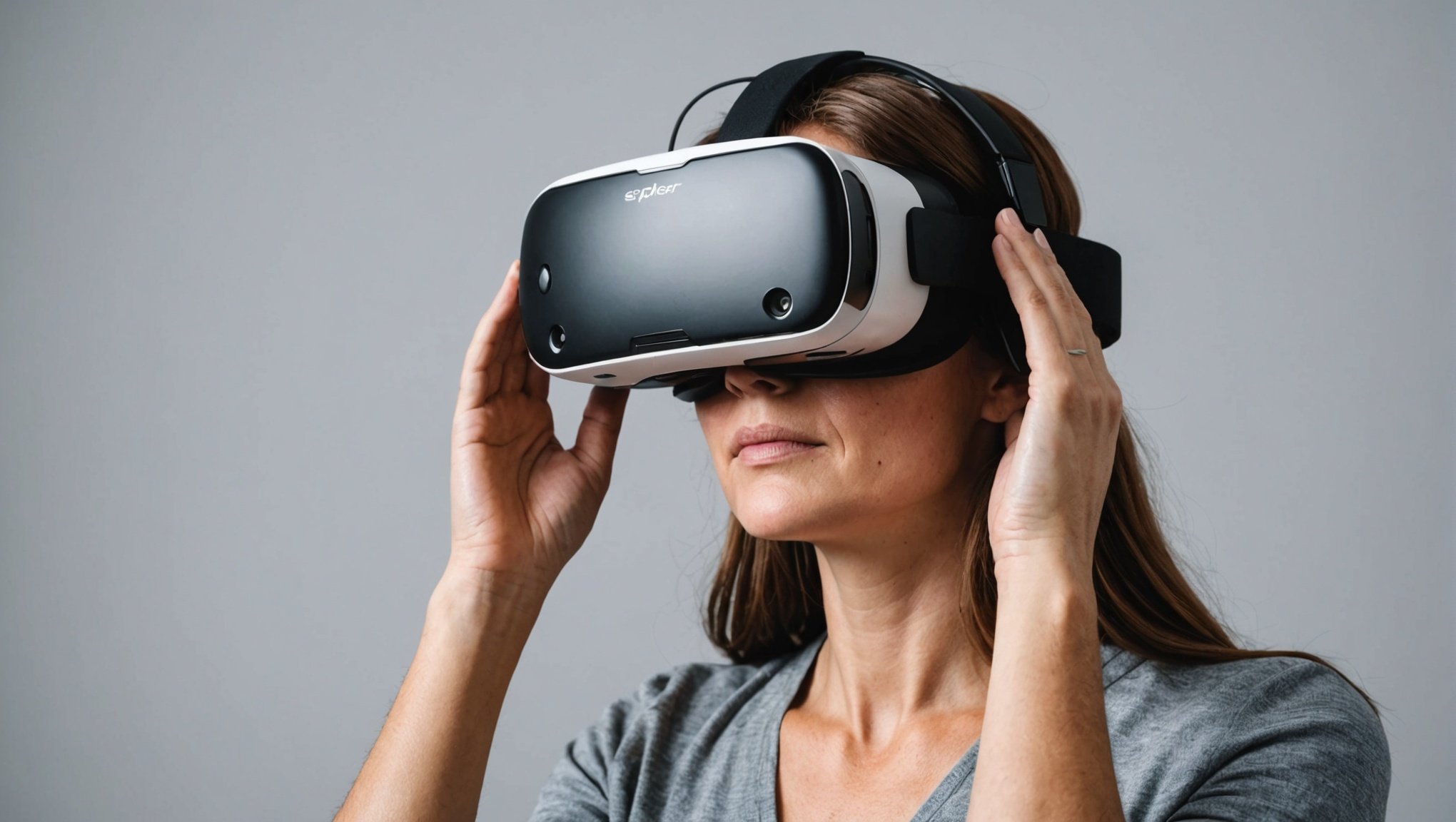Overview of Cognitive Rehabilitation and Brain Injury
Cognitive rehabilitation is a specialised therapeutic approach designed to enhance recovery following brain injuries. This process involves structured practices that aim to improve cognitive function and adaptive skills, which are crucial for daily life activities. Given the complexity and variability of brain injuries, cognitive rehabilitation is essential in helping individuals reclaim cognitive abilities such as memory, attention, and problem-solving.
Brain injuries are often classified into traumatic brain injuries (TBI) and non-traumatic brain injuries. TBIs result from external forces, like accidents or falls, affecting brain function, while non-traumatic injuries, such as strokes or infections, occur due to internal medical conditions. These injuries can significantly impair cognitive abilities, necessitating systematic rehabilitation efforts.
Also read : The Benefits of Consistent Tai Chi Practice on Joint Wellness: Exploring Its Impact on Your Health
Traditional therapy methods in cognitive rehabilitation include cognitive-behavioural therapy, occupational therapy, and speech-language therapy. These approaches are often tailored to the individual, focusing on their specific deficits and promoting functional recovery. Integrative strategies involve practising tasks that gradually increase in complexity, employing repetition, and fostering social interactions to improve cognitive and social communication skills.
Understanding these methodologies is imperative for effective brain injury recovery. As research progresses, rehabilitation techniques continue to evolve, aiming to maximise patient outcomes and enhance overall quality of life.
Also read : Proven Strategies to Minimize Screen Time and Enhance Your Mental Well-Being
Virtual Reality Technology in Rehabilitation
Virtual reality (VR) technology is a digital interface that creates a simulated environment, offering immersive experiences that can be incredibly beneficial in rehabilitation. In a therapeutic context, VR replaces the traditional rehabilitation exercises with interactive and engaging simulations. Participants use VR headsets to access these virtual worlds, where they can perform specific movements or tasks designed to aid recovery.
Overview of VR Technologies in Rehabilitation
Numerous VR technologies are utilised in rehabilitation practices today. VR systems can simulate environments and tasks that stimulate physical, cognitive, or emotional growth. For instance, VR can mimic daily scenarios, helping patients relearn how to navigate real-world situations safely. These technologies harness features like motion tracking to monitor patient movements, providing instant feedback. Such systems not only enhance rehabilitation outcomes but also maintain patient motivation through gamified experiences.
Real-World Applications
VR’s therapeutic applications span across various settings. Physical rehabilitation employs VR for patients recovering from injuries, allowing them to practice movement and balance in a controlled way. In cognitive rehabilitation, VR aids in improving memory and attention for those with neurological disorders. Similarly, emotional rehabilitation benefits from VR’s immersive therapy, reducing anxiety or trauma through exposure therapy in a safe environment. Ultimately, the possibilities with VR in rehabilitation continue to expand, offering innovative solutions to traditional challenges.
Research Findings on VR in Cognitive Rehabilitation
Utilising virtual reality (VR) therapy research opens new doors for improving cognitive functions. Recent clinical studies highlight how VR applications can significantly enhance cognitive rehabilitation processes. These studies deeply investigate the mechanisms through which VR stimulates cognitive improvement, often proving the efficacy of this cutting-edge technology.
Clinical Trials and Their Outcomes
In various clinical trials, researchers observed individuals undergoing VR-based therapy. Results consistently demonstrated notable enhancements in cognitive abilities. Key outcomes included better memory recall and improved decision-making skills, establishing VR as a viable tool in cognitive rehabilitation protocols.
Key Findings from Research Studies
Research studies consistently indicate that VR interventions play a crucial role in cognitive function improvement. By simulating realistic environments, VR enables patients to practice daily activities, thus bridging the gap between therapy and real-world applications. Regular VR engagement shows sustained improvements over time, highlighting its therapeutic potential.
Meta-Analyses and Literature Reviews
Recent meta-analyses of VR studies provide a comprehensive understanding of its effectiveness. By analysing existing literature, these reviews underscore VR’s unique ability to transfer learned skills into practical settings. This evidence-based approach confirms VR’s role as an integral part of modern cognitive rehabilitation strategies, underscoring its burgeoning role in therapeutic advancements.
Benefits of Using VR for Cognitive Rehabilitation
Virtual Reality (VR) offers significant benefits for cognitive rehabilitation, transforming the traditional approaches in innovative ways. A critical advantage is the boost in user engagement and motivation during rehabilitation. When patients find themselves immersed in enriched, interactive environments, they tend to commit more to their rehabilitation exercises. This engagement leads to better adherence to therapy routines, ultimately enhancing rehabilitation effectiveness.
Furthermore, VR technology allows the customization of experiences to address specific cognitive deficits. Therapists can tailor virtual scenarios to challenge particular areas of cognitive weakness, providing a more personalized therapy experience. This adaptability ensures that each rehabilitation program is as effective as possible for the individual user.
Evidence supports the improved recovery outcomes associated with VR use in cognitive rehabilitation. Studies have shown that patients undergoing VR-based therapy often experience faster and more substantial progress compared to those using conventional methods. This effectiveness is attributed to VR’s ability to replicate real-world scenarios, allowing patients to practise and develop their skills in a safe and controlled environment.
By leveraging these benefits, VR is revolutionising rehabilitation, offering a promising avenue for enhancing recovery in individuals with cognitive impairments.
Challenges and Limitations of VR in Rehabilitation
Implementing Virtual Reality (VR) in rehabilitation comes with a set of challenges. One of the primary obstacles is the technological complexity. Ensuring VR systems are robust and reliable for clinical use can be demanding. It requires integrating sophisticated hardware and software, alongside skilled personnel to manage these systems effectively.
Another aspect is the limitations associated with current VR applications, particularly in cognitive rehabilitation. While VR has shown potential, its effectiveness can vary. Some interventions may not fully replicate real-world interactions or provide the depth of stimulus needed for complex cognitive engagement.
Moreover, accessibility issues are a significant concern. Not all patients have access to the required technology due to affordability. The cost of VR systems can be prohibitive, limiting their widespread adoption in healthcare settings. Additionally, some patients may face physical barriers, such as limited mobility, which can affect their ability to utilise VR setups effectively.
Addressing these challenges necessitates a combined effort from developers, healthcare professionals, and policymakers to improve VR solutions and make them more accessible and affordable for those who could benefit the most.
Expert Opinions and Case Studies
Understanding the transformative potential of Virtual Reality (VR) in rehabilitation, insights from experts and documented case studies offer invaluable knowledge.
Insights from Rehabilitation Professionals
Rehabilitation professionals have observed significant progress in patients using VR. Experts in the field highlight VR’s interactive nature, which enhances patient engagement. They often describe VR as a tool that can simulate real-world challenges, accelerating the recovery process for patients, particularly those with brain injuries.
Successful Case Studies of VR Implementation
Several successful case studies illustrate the impactful implementation of VR in rehabilitation settings. In one documented instance, patients demonstrated notable improvements in cognitive and motor skills post-treatment with VR interventions. These improvements underline VR’s effectiveness as a supplementary tool, providing immersive experiences that standard therapies may lack.
Testimonials from Brain Injury Survivors
Survivors of brain injuries share powerful testimonials on how VR has positively influenced their rehabilitation journeys. Survivors often express that VR’s dynamic and engaging nature helped them regain lost abilities and renewed their motivation. This firsthand feedback from those who have benefited directly provides a poignant confirmation of VR’s potential in therapeutic contexts, aligning with expert insights and supporting case study outcomes.
Future Directions for VR in Cognitive Rehabilitation
In the realm of cognitive rehabilitation, the future of VR therapy promises to revolutionise patient care. Technological advancements are shaping how therapy sessions can be conducted, offering tailored and interactive environments that foster engagement and learning. Innovations in VR technology are paving the way for more immersive and realistic experiences, which can be customised to meet individual patient needs. This personalisation enhances the efficacy of cognitive exercises, making the rehabilitation process more effective.
Current and emerging research trends are exploring the integration of artificial intelligence to create adaptive experiences that respond to a patient’s progress, ensuring that therapeutic interventions remain relevant and challenging. Moreover, studies are investigating how VR can be employed to simulate real-world scenarios, a practice particularly beneficial in helping patients regain lost skills and confidence.
Beyond individual therapy, VR is playing an instrumental role in the evolution of rehabilitation practices. By facilitating remote therapy sessions, it increases access to care for patients who may otherwise face geographical or logistical barriers. In summary, the future of VR therapy in cognitive rehabilitation holds vast potential for transforming how care is delivered, making it more inclusive, effective, and personalised.






